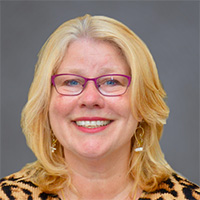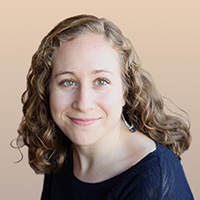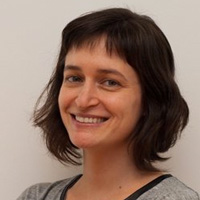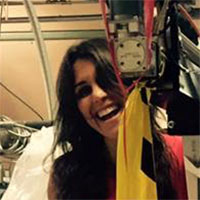Events at CUWiP NYC 2018
Download a pdf of the entire program.
Below are the main events!
- Lab Tours at Columbia
- Plenary Talk 1: Prof. Nadya Mason
- Breakout Sessions
- Lunch Time Topic Tables
- Keynote: Prof. Patricia Burchat
- Step Up For Women
- CCNY/ASRC Lab Tours
- Panel Discussion
- Networking and Grad School Fair
- Plenary Talk 2: Prof. Kelle Cruz
- Student Talks and Posters
Friday
Saturday
Sunday
Lab tours
Tour 1: 4:00 – 5:00 pm
Tour 2: 5:00 – 6:00 pm
Each of the tours below will be conducted during the times for tour 1 and 2.
Please get to your meeting point 5 minutes before the tour (so 3:55 PM or 4:55 PM)
Astrophysics tour
Meeting spot: Groups 1,2,3 – Pupin Theory Center
- Particle astrophysics: direct dark matter detection using liquid Xenon, lab led by Prof. Elena April
- Experimental cosmology, lab led by Prof. Bradley Johnson
- Galaxy formation and evolution, lab led by Prof. David Schiminovich
Condensed Matter (CM) & Atomic, Molecular, and Optical(AMO) tour
Meeting spot: Groups 1,3 – Northwest Corner Building Lobby (inside main entrance), Group 2 – Pupin Lobby (inside main entrance)
- AMO: ultracoldmolecules, lab led by Prof. Tanya Zelevinsky
- CM: atomic-resolution structural and electronic information of quantum materials, lab led by Prof. Abhay Pasupathy
- CM and mechanical engineering: novel materials for a wide range of multidisciplinary efforts, lab led by Profs. Cory Dean and Jim Hone
Applied Physics & Biophysics tour
Meeting spot: Groups 1,2 – Carleton Commons, Mudd, Group 3 – Pupin Lobby (inside main entrance)
- Biophysics: imaging and modeling biology at physical extremes, lab led by Prof. Ozgur Sahin
- Plasma physics and fusion lab
- Solid state: light-matter interaction in the subwavelength scale and implications for solid-state devices, lab led by Professor Nafang Yu
Plenary Talk 1: Prof. Nadya Mason
Time: 6:15 pm - 7 pm, Friday, 1/12
Location: Columbia University
Life in the Academy: Trying to Make a Difference while Balancing Research, Teaching, Outreach and Family
In this talk I will discuss my experiences as a condensed matter physicist. In addition to discussing my research, I will talk about my diversity advocacy, share challenges and opportunities for balancing life in the academy, and discuss the special challenges faced by women and minorities.
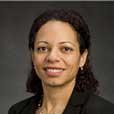
Breakout Sessions
Time: 8:30 am - 9:30 am & 11 am - 12 pm, Saturday
Location: Event Oval in the Diana Center (lower level 1), Barnard College
Undergraduate Research
Faculty who run undergraduate research programs at Columbia, City College, and Barnard are here to tell you what they look for in students and how to succeed in a lab. Undergraduates currently working in labs will also be on the panel to share their experiences and tips.
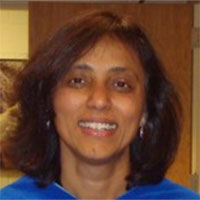
Underrepresented in STEM
Come hear from people across a wide spectrum of identities about their experiences in academia, programs and groups designed to support underrepresented groups, and more!
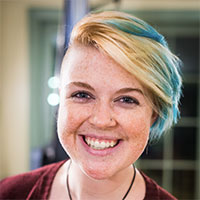
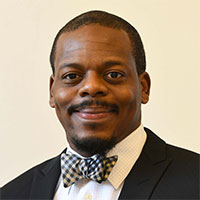
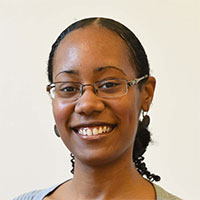
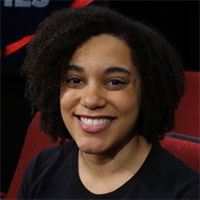
Navigating Professional Spaces
At this session you will learn about how to network and navigate professional spaces, including the world of academia. Our speaker, Celia Lloyd, will guide you through leadership development activities and give you tips on how to find a mentor.
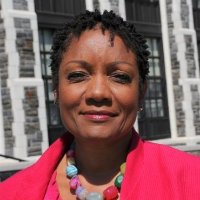
Graduate School and Fellowship Applications
Hear from a panel of faculty and graduate students who have served on admissions committees, recently applied to graduate school, and/or won fellowships. The session will open with a brief introduction by each panelists followed by a moderated panel discussion. In the second half, the panel will open for questions about applying to graduate school, being competitive in fellowship applications, and more.
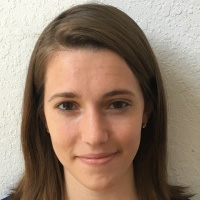
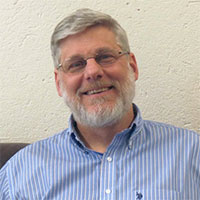
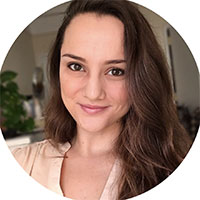
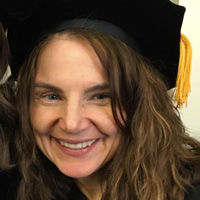
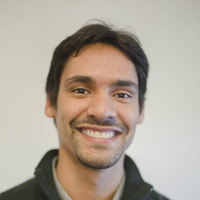
Mental Wellness
College life is inherently stressful, but there are ways to better manage the stress and to help you thrive. This workshop will offer tools to foster resilience, increase coping skills, and help you create greater balance in your life. We will also talk about imposter syndrome, self-care, and share our personal stories about mental health in academia and beyond.
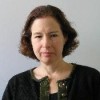
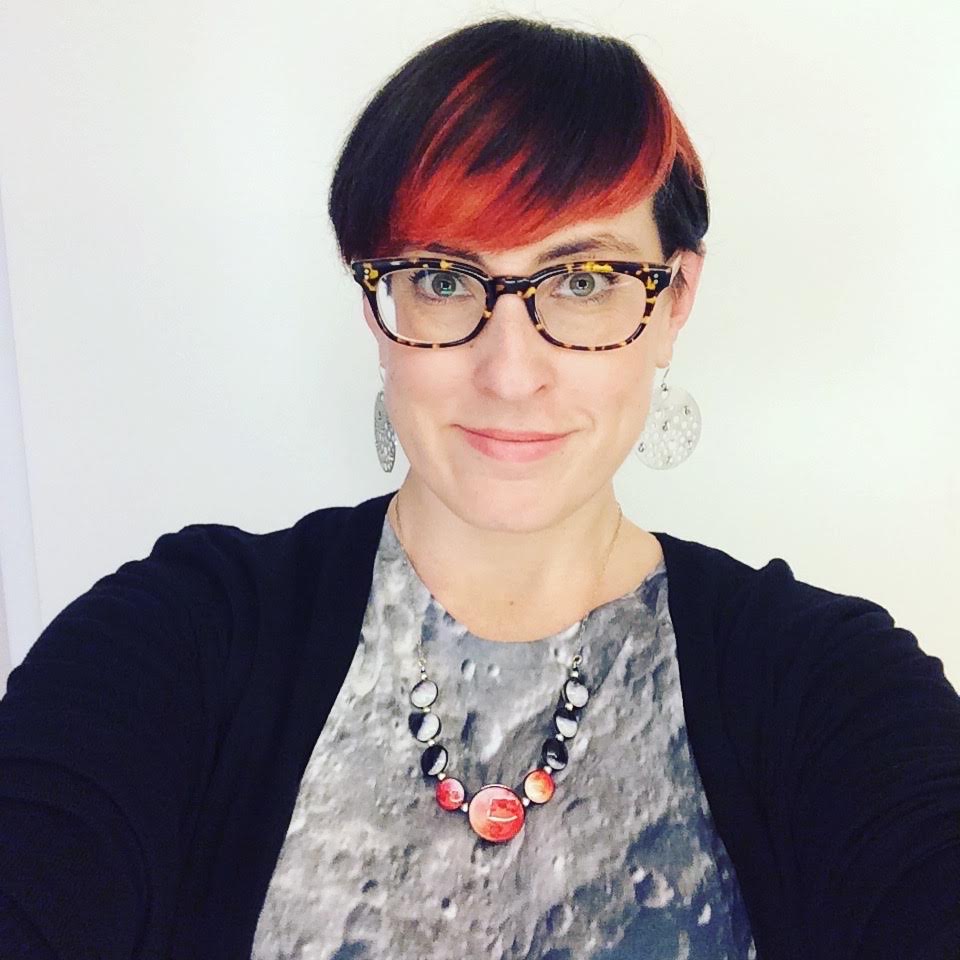
Careers Tangential to Physics
Hear from women with undergraduate or graduate physics degrees about how they pivoted the skills they learned in school to work in industries including finance, consulting, data science, education, and more! Each panelist will give a brief introduction to their background and current work, with the rest of the time open for your questions.
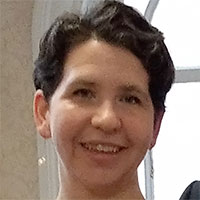
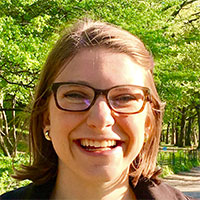
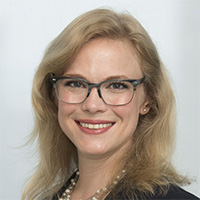
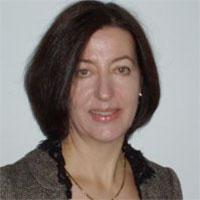
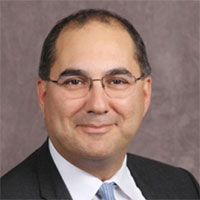
Lunchtime Topic Tables
Time: 12pm, Saturday
Location: Event Oval in the Diana Center (lower level 1), Barnard College
Have a casual chat over lunch on any of the following topics:
Applying Skills Acquired in Physics to Other Fields
Emma Jablonski, Software Developer, D.E. Shaw research
The focus of this table is to provide insights into how a background in physics can open the door to a variety of professional opportunities. We will discuss how the analytical and coding skills developed through an undergraduate physics degree prepare students for careers in various industries.
Astronomy/Astrophysics as a Career Path
Mary Putman, Professor, Columbia Astronomy
Interested in studying celestial objects as a paid position? We will discuss the typical path to becoming an Astrophysicist/Astronomer and the job prospects in the field.
Exoplanets and Data Science
Ruth Angus, Postdoc, Columbia Astronomy
Searching for planets orbiting distant stars may sound thrilling, and it is, but you may not know that it's basically data science. From munging (cleaning up imperfect data sets) to modeling (doing the science bit), it all involves data manipulation. I'll discuss the realities of exoplanet science and the skills you'll learn if planets are your passion. Data scientists are sought after in industry too, so if you want a job at Netflix or Amazon, planet hunting might just get you there.
Modeling the Universe
Tjitske Starkenburg (postdoc, CCA), Greg Bryan (Columbia Faculty)
Creating models to explain observations is at the heart of astronomy, and we are in the midst of a revolution in the detail and realism of those models, as well as the data they need to match. We will discuss the opportunities and challenges of this field.
Atomic, Molecular and Optical Physics
Stan Kondov, Postdoc, Columbia Physics
Please join for broad discussion of life in AMO: atmosphere in the community, challenges of graduate school, and career prospects.
Going from Physics to the Mathematical and Computational Sciences
Kyle Mandli, Professor, Columbia Applied Physics and Applied Mathematics
Physics and mathematics have always held close ties to each other so it is natural to consider which field might be best for your graduate work and further career. The discussion will include what kind of things such as transition entails and the likelihood that you will be able to pursue physics problems in these fields.
How To Give a Compelling Physics Talk
David Helfand, Professor and Chair, Columbia Astronomy
Being able to captivate an audience with your presentation is an essential skill for advancing any career. Learn some simple do's and don'ts for constructing a compelling talk on physics (or any other topic)
Using physics in the Financial industry
Greg Kaldor, Managing Director, Global Equities, Bank of America
Chidinma Iwueke, Associate, Global Research, Bank of America
A Physics career in Industry
Kathryn Guarini & Heike Riel (IBM)
Please join us for a dialog about opportunities and challenges of a physics career in industry with two physicists who have played various technical and leadership roles at IBM.
Alternative Careers for STEM majors: work at National Labs
Vivian Stojanoff and members of Brookhaven Women in Science, Brookhaven National Lab
Strategies for Thriving as a Person-of-Color in Physics
Moiya McTier, Graduate Student, Columbia Astronomy
It's no secret that people of color are underrepresented in STEM careers, and the numbers for women of color are so small that the statistics are almost meaningless. At this topic table, we'll discuss practical strategies for making it through the so-called STEM pipeline so that future generations of scientists can be more representative of the nation's population.
LGBTQIA+ in Physics
Mel Abler (Columbia grad), Charlotte Olsen (Rutgers grad)
What challenges do we face when navigating a physics degree through the lens of gender/sexual identity? What methods should we use that we — as well as those that come after us — may feel welcome and included? Where is there still a need for improvement in our departments and in the field in general? How does our own intersectionality make us better advocates? Let’s talk. All are welcome.
First generation/low income college students
Kirsten Blancato, Graduate Student, Columbia Astronomy
Being a first-generation and/or low-income college student in physics/astronomy can be a challenging and isolating experience. In addition to a lack of knowledge of the unspoken rules of higher education, many first-gen/low-income college students experience guilt about leaving their families behind. Together, let's discuss strategies for navigating the culture of academia as a first-gen/low-income student, while at the same time maintaining a connection to family back home.
Strategies that increase sense of belonging and confidence in low-diversity fields
Susan Meabh Kelly, Research Associate, NASA Goddard Institute for Space Studies
"Imposter syndrome" and "stereotype threat" are hot topics of study in the nation's efforts to create a more diverse and inclusive STEM workforce. At this table we will discuss strategies to deflate these obstacles, as established by scientists working in low-diversity fields, federal agencies, professional science organizations, and sociological research. Unique, empowering opportunities embedded within these challenges will be identified and discussed.
Work Life Balance
Jacquelyn Noronha-Hostler, Assistant Professor, Rutgers Physics
Balancing work-life can be challenging in physics when it comes to pregnancy, parenting, care-giving, living abroad (especially in a new language!), and the two-body problem (balancing two academic careers). We will discuss strategies on maintaining a career while also juggling life outside of physics.
Life as a graduate student
Catie Raney (Rutgers grad)
As an undergraduate, you may wonder whether graduate school is the right next step for you, and how to get there if it is. We will discuss what you can do with a higher degree, how it compares to undergrad, and typical day-to-day life as a graduate student. For those who have already decided it's the right path, we'll also discuss the application process, getting into a good program for your interests, and what to ask on grad school visits.
Keynote Talk: Prof. Patricia Burchat
Time: 2-3:30 pm Saturday
Location: Steinman Auditorium, CCNY
Going far together — Advancing science and learning through collaboration.
“If you want to go fast, go alone. If you want to go far, go together.” This popular proverb — thought to have originated in Africa — emphasizes the strength of communities working together. It also applies extremely well to scientific discovery and learning. Some discoveries in physics are made by individuals or small groups, but many major recent discoveries could only have been made through collaborations that bring together diverse strengths and skills.
In this presentation, I will use my own experience in large collaborations to illustrate the breadth of challenges and opportunities that modern “team science” provides. I will focus on one particular project — the Large Synoptic Survey Telescope — being built now by an international team of scientists and engineers to produce the deepest-ever census of the Universe, and the associated Dark Energy Science Collaboration that is preparing to use this trove of images to better understand the fundamental nature of the mysterious effect we call “dark energy”. I will conclude by describing how students can contribute to modern team science, and how I incorporate “going far together” in my own teaching of physics.
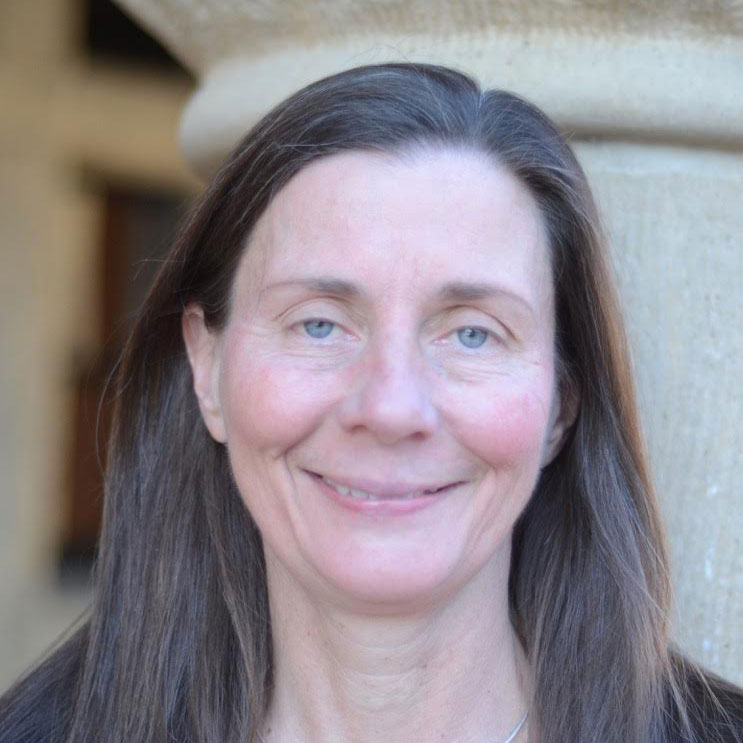
Step Up for Women
Direct action to increase women in physics: How you can help change the physics community
Time: 4 pm, Saturday
Location: Steinman Auditorium, CCNY
While nearly half of the students taking physics in high school are women, only one third of the students interested in physics majors in college are women. How can you help to change this pattern? Physics education researchers have developed two high school physics class lessons that have been shown to increase the interest of high school women in physics careers. Join us to learn about this exciting program to help high school teachers encourage women to pursue physics careers and how you can help change the way high school students view their future in physics. Learn more at stepup4women.org.
Featuring:
- Miranda Bard (APS)
- Katiuscia Cassemiro (APS)
- Catherine Garland (Uncommon HS)
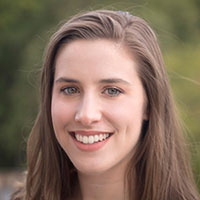
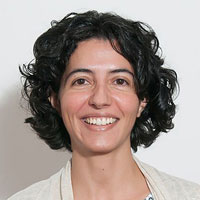
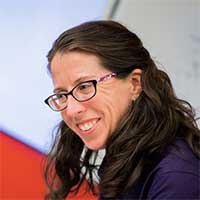
CCNY/ASRC Lab Tours
Time: 4 pm
Location: CCNY Campus
With a major investment of more than a quarter billion dollars from the State of New York, two new science research buildings have recently come on line at CCNY – the CCNY Center for Discovery and Innovation (CDI) for CCNY's science research programs and the Advanced Science Research Center(ASRC)at the Graduate Center of CUNY. The following tours are available:
1. Physics research laboratories tour
Meeting spot: CUWiP Help Desk in Lobby of Steinman Hall
The physics research laboratories in the new CCNY-CDI Science Building, including quantum metrology, nanophotonics, biophysics, low-temperature physics, MBE facilities, and more
2. NanoFabrication facility tour
Meeting spot: CUWiP Help Desk in Lobby of Steinman Hall
The 5,000-square-foot NanoFabrication Facility for the design and fabrication of a wide range of micro and nanostructures in the ASRC building.
Networking & Grad School Fair
Time: 9:30 to 11 on Saturday morning
Location: Barnard College
The following graduate programs will have representatives at our grad school fair. Come say hi!
- Boston University (physics)
- Brown (physics)
- Columbia (astro)
- Columbia (physics)
- CUNY Graduate Center (physics)
- Drexel University (physics)
- Harvard (astro)
- Harvard (physics)
- NYU Tandon School of Engineering
- Princeton (astro)
- Rutgers (physics)
- Southern Connecticut State University (physics)
- University of Massachusetts Amherst (physics
- Yale (astro)
- Yale (physics)
Also, several companies and institutions in the region will have representatives present as well:
Plenary Talk 2: Prof. Kelle Cruz
Time: 9:00 am- 9:45, Sunday, 1/14
Location: Columbia University
My methodical approach to finding professional success and personal happiness
I would like to share with you the methods that I have used to identify my dream job as an academic scientist and to guide my personal and professional choices. I will present this framework in a way which individuals could potentially adapt to their own situation and life goals. The framework is adaptable for all career paths and it just so happens that in my case, being a professor was the best solution given my constraints. I will further describe some of the philosophies which have helped me to find both success and happiness as a woman in a patriarchal profession.
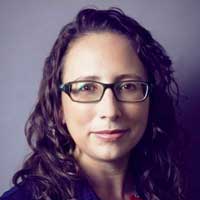
Student Talks and Posters
View the Abstract Book (pdf) .
Talks
Time: 9:45 am on Sunday January 14th 2018
Format: 10 minute talk + 2 minutes of questions
Computing: Talks will be displayed from a PC computer. PDF format is strongly preferred but power point will also be available. We will ask you to upload the talk to a dropbox folder by the evening of January 11th, 2018. Details of how to do this will come later.
Posters
Time: 11:00 - 12:00 pm on Sunday, January 14th 2018.
Format: preferred poster format is A0 vertical (841 x 1189 mm or 33.1 x 46.8 in). This is the largest space available for your poster.
Set-up: We will provide boards to put the posters up on. The posters should be put up during breakfast on Sunday morning. The posters must be printed beforehand.
